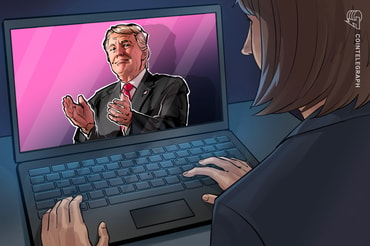Only Congress Can Ban Election Betting, Kalshi Tells Appeals Court in New Filing

Election 2024 coverage presented by
The U.S. Commodity Futures Trading Commission (CFTC) may not like election betting, but only Congress — not the regulator — has the authority to ban it, embattled prediction market purveyor Kalshi argued in a Friday court filing.
Kalshi is currently locked in a legal battle with the CFTC, which, last September, attempted to block the prediction market from listing certain event contracts that allowed traders to bet on which political party would control the House or Senate after the November elections. The regulator argued that Kalshi’s proposed contracts involved “gaming” and “activity that is unlawful under state law” and were therefore “contrary to the public interest.”
Kalshi then sued the CFTC in the District of Columbia, alleging that the agency exceeded its statutory authority and violated the Administrative Procedure Act (APA) when it tried to ban election prediction markets.
The CFTC, Kalshi argued in its most recent filing, “concoct[ed] a Goldilocks definition of ‘gaming’ that reaches bets on ‘contests’ (including elections) but no other contingent events — is arbitrary, outcome-driven gerrymandering with no basis in statute.”
The District Court sided with Kalshi — Judge Jia Cobb granted Kalshi summary judgment, rejecting the CFTC’s interpretation of the Commodity Exchange Act (CEA) as “much too broad” and vacating the CFTC’s order blocking Kalshi’s contracts.
After Cobb issued her decision, the CFTC requested that she stay her order while they appealed it. Cobb declined to do so. When the regulator then asked a U.S. federal appeals court to temporarily block the election-related events contracts, the appeals court also declined, issuing a unanimous decision denying the CFTC’s emergency motion to stay and arguing that the CFTC had provided “no concrete basis” to conclude that election contracts could harm the public interest.
Now, the CFTC is officially appealing Cobb’s ruling. The appeal comes as the regulator is attempting to broaden the definition of gaming to include “political contests” – if passed, this would effectively ban election betting.
In its brief filed Friday, Kalshi reiterated its arguments made to the lower court and asked that the appellate court should affirm Cobb’s ruling.
“In short, the Commission’s decision to prohibit Kalshi’s contracts exceeded its statutory authority. Congress is free to add “elections” to the [Commodity Exchange Act’s] list of enumerated activities, and thereby authorize the CFTC to prohibit election prediction markets. But Congress has not done so. This Court should therefore affirm the District Court’s judgment,” Kalshi’s lawyers argued.
The CFTC’s response to Kalshi’s brief is due Dec. 6.
Edited by Nikhilesh De.
Disclosure
Please note that our privacy policy, terms of use, cookies, and do not sell my personal information have been updated.CoinDesk is an award-winning media outlet that covers the cryptocurrency industry. Its journalists abide by a strict set of editorial policies. CoinDesk has adopted a set of principles aimed at ensuring the integrity, editorial independence and freedom from bias of its publications. CoinDesk is part of the Bullish group, which owns and invests in digital asset businesses and digital assets. CoinDesk employees, including journalists, may receive Bullish group equity-based compensation. Bullish was incubated by technology investor Block.one.
Cheyenne Ligon is a CoinDesk news reporter with a focus on crypto regulation and policy. She has no significant crypto holdings.

Published on Other News Site












